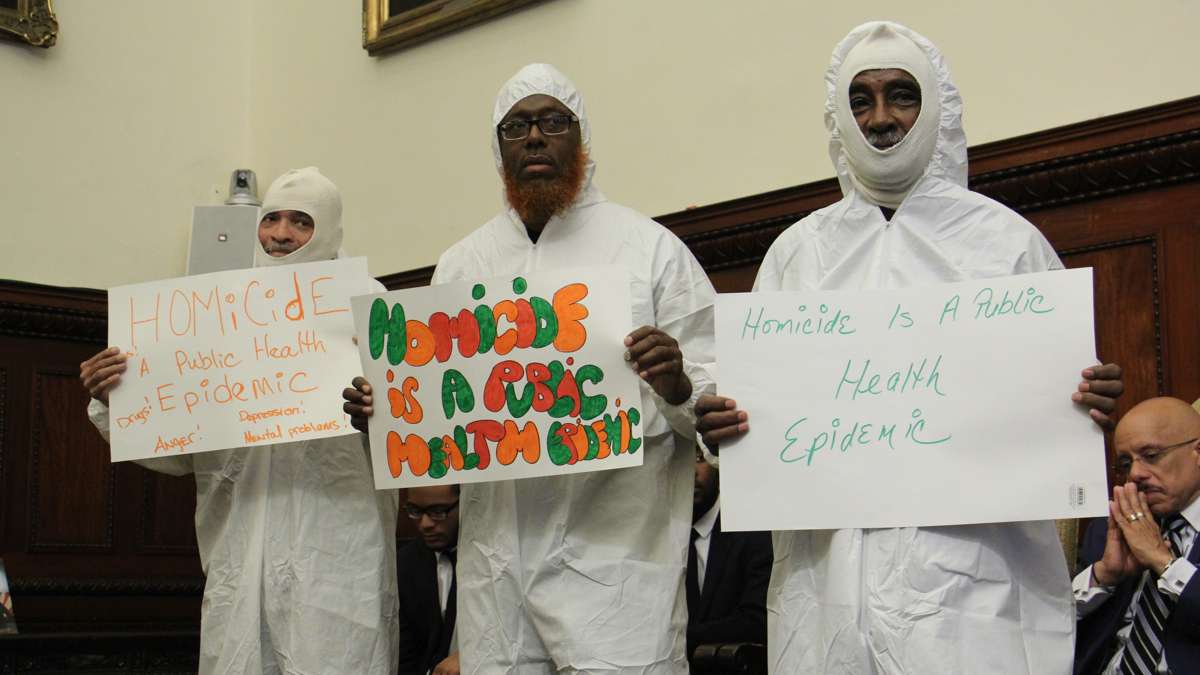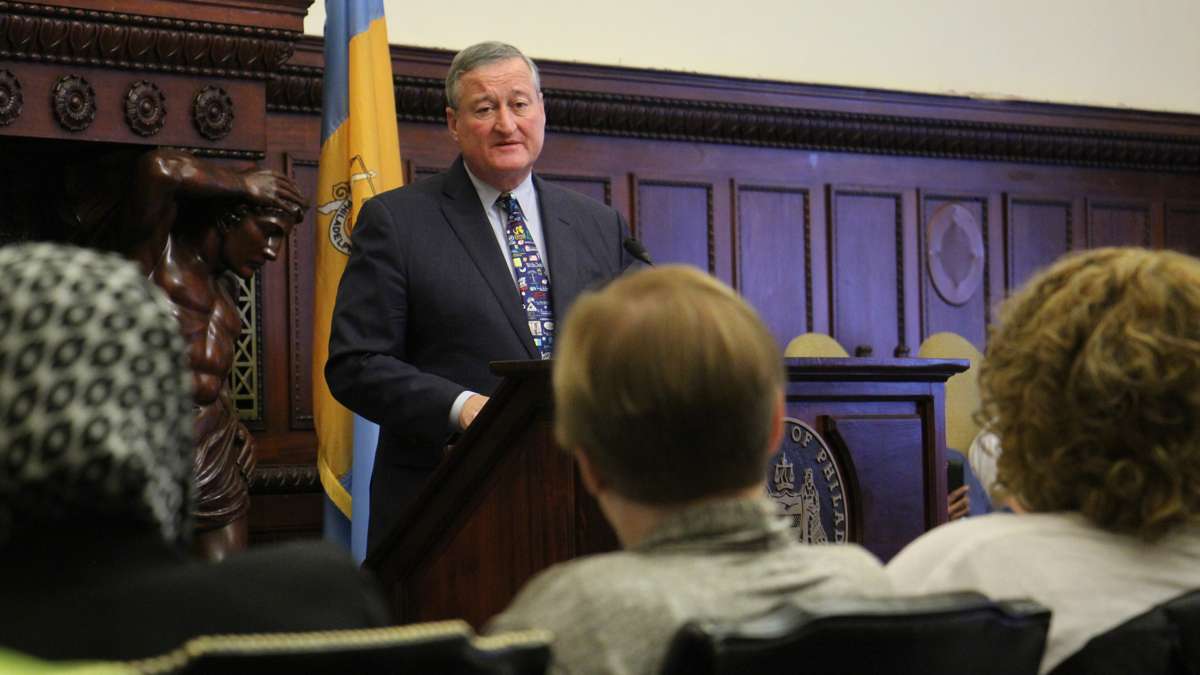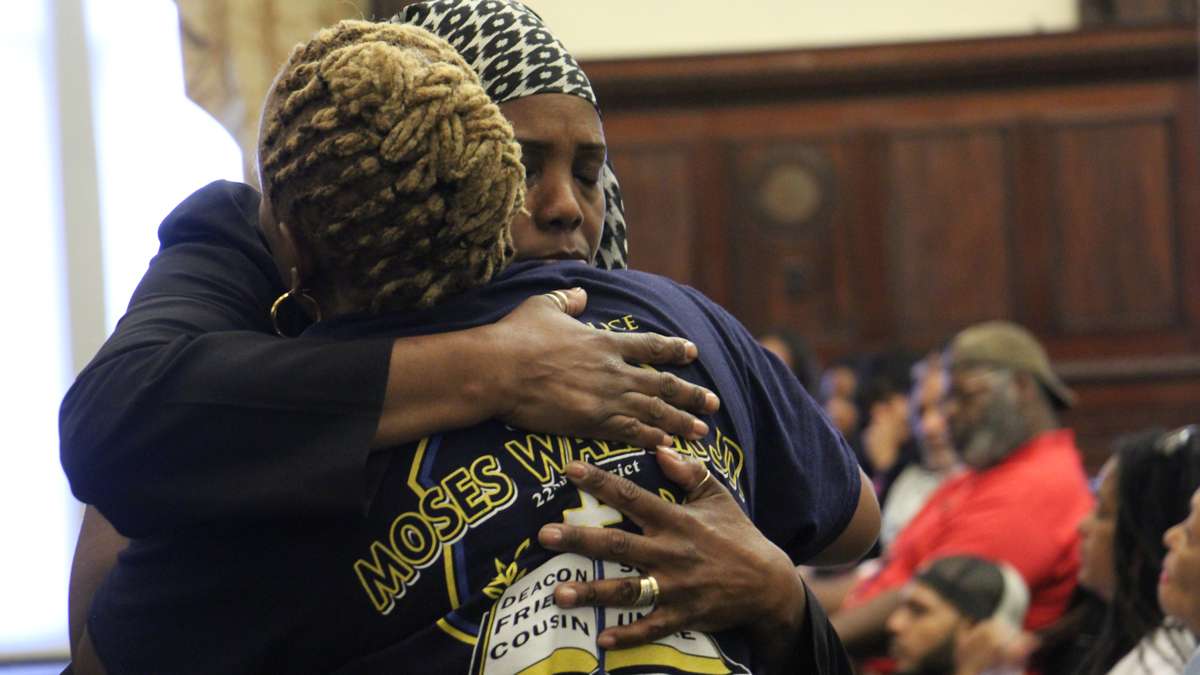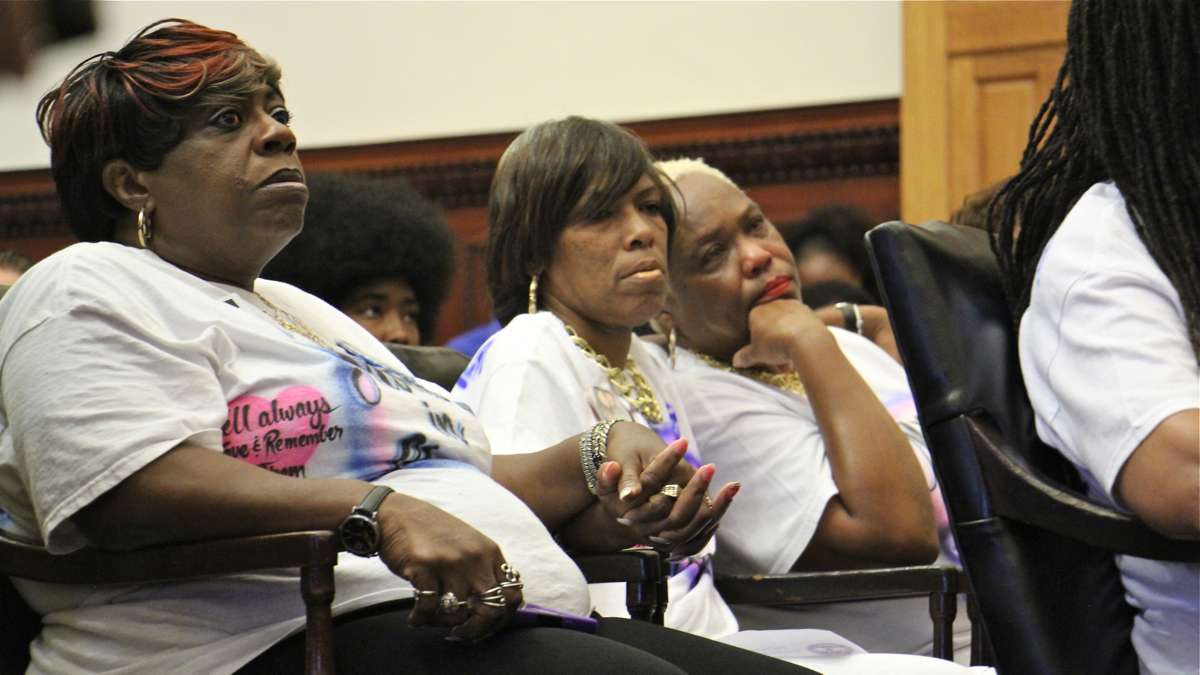On a day for remembering, unbearable grief and pleas to stem Philly’s murderous tide
“I didn’t ask to walk these shoes.”
Movita Johnson-Harrell leaned into a podium in the Mayor’s Reception Room at City Hall, her voice steady and calm — at first.
Johnson-Harrell went on to explain that on Jan. 12, 2011, she was a mother of four. About 7 p.m., she sat on her bed with three of her children — all teenagers — gathered around her. Then, her youngest son, Charles, 18, gave her a huge smile.
“And God whispered in my ear, ‘Get off the bed and hug your son,'” Johnson-Harrell said. “And I got off the bed, and I hugged my son, and I kissed his neck, and I said, ‘Charles Johnson, do you know how much your mommy loves you?'”
The next time Johnson-Harrell saw her son, it was 2 o’clock the following morning at Einstein Medical Center. He was lying on an operating table in a white body bag zipped up to his neck with tubes coming out of his mouth. Charles Johnson had been fatally shot in a horrendous case of mistaken identity.
“And I begged them to let me kiss my son and they said, ‘You can’t touch him because it’s a homicide investigation,'” she said, her voice starting to break.
“I said, ‘Please, can I kiss my son?’ And I kissed my son’s neck, and I said, ‘Charles Johnson, do you know how much your mommy loves you?’ And they zipped up the bag and my life has never been the same.”
Johnson-Harrell’s son’s life ended the way most young black men die in the U.S.
In 2011, the Centers for Disease Control found homicide to be the leading cause of death for black men ages 15 to 34.
Sunday is the National Day of Remembrance for Murder Victims. Johnson-Harrell shared her story at a ceremony at City Hall Thursday afternoon led by the anti-violence group Mothers in Charge.
“You might see us smiling and think that we’re OK, but it’s a pain we never get over,” said the organization’s founder Dorothy Johnson Speight, whose son, Khaaliq Jabbar Johnson, was shot to death in 2003 during a dispute over a parking spot. “It’s a pain that we get up with, and it’s a pain we go to bed with.”
The organization grew out of Speight’s desire to turn her grief into action, and it has spread to other parts of the country with chapters from New York and New Jersey to Kansas and California. Mothers In Charge has hosted major rallies and conferences and provides grief support services for victims and works with incarcerated women to transition out of jail, among other programs.
“We need to talk about homicide as a public health epidemic,” said Speight. “It needs to be treated that way” with more funding for prevention than just beefing up police patrols.
In Philadelphia, homicide is on the rise with more than 208 murders so far in 2016. According to the city’s police department, that’s 7 percent higher than this time last year.
The ceremony touched on what might help stem violence — Mayor Jim Kenney talked up his plan to renovate recreation centers and libraries in poor, high-crime neighborhoods. The head of the city’s behavioral health department spoke about an effort to provide mental health support for communities in the aftermath of violent incidents. Democratic state Sen. Vincent Hughes wistfully spoke of the need for gun control legislation that rarely gains traction.
“It’s time to do something very radical,” Hughes said. “I’m not sure what it is, but looking at these lost lives and these opportunity costs … means that the same way that we’ve been going, got to change.”
WHYY is your source for fact-based, in-depth journalism and information. As a nonprofit organization, we rely on financial support from readers like you. Please give today.












